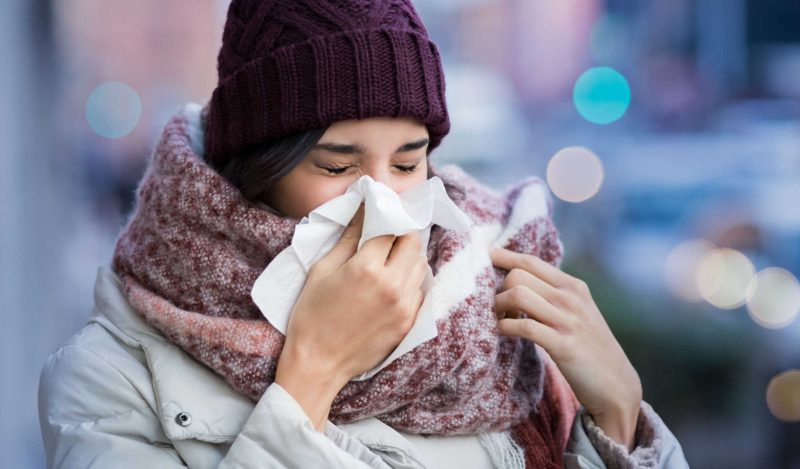COVID-19
Treat COVID-19 like the flu: new CDC guidelines

Press release from the CDC
CDC updates and simplifies respiratory virus recommendations
Recommendations are easier to follow and help protect those most at risk
CDC released today (Friday, March 1, 2024) updated recommendations for how people can protect themselves and their communities from respiratory viruses, including COVID-19. The new guidance brings a unified approach to addressing risks from a range of common respiratory viral illnesses, such as COVID-19, flu, and RSV, which can cause significant health impacts and strain on hospitals and health care workers. CDC is making updates to the recommendations now because the U.S. is seeing far fewer hospitalizations and deaths associated with COVID-19 and because we have more tools than ever to combat flu, COVID, and RSV.
“Today’s announcement reflects the progress we have made in protecting against severe illness from COVID-19,” said CDC Director Dr. Mandy Cohen. “However, we still must use the commonsense solutions we know work to protect ourselves and others from serious illness from respiratory viruses—this includes vaccination, treatment, and staying home when we get sick.”
As part of the guidance, CDC provides active recommendations on core prevention steps and strategies:
- Staying up to date with vaccination to protect people against serious illness, hospitalization, and death. This includes flu, COVID-19, and RSV if eligible.
- Practicing good hygiene by covering coughs and sneezes, washing or sanitizing hands often, and cleaning frequently touched surfaces.
- Taking steps for cleaner air, such as bringing in more fresh outside air, purifying indoor air, or gathering outdoors.
When people get sick with a respiratory virus, the updated guidance recommends that they stay home and away from others. For people with COVID-19 and influenza, treatment is available and can lessen symptoms and lower the risk of severe illness. The recommendations suggest returning to normal activities when, for at least 24 hours, symptoms are improving overall, and if a fever was present, it has been gone without use of a fever-reducing medication.
Once people resume normal activities, they are encouraged to take additional prevention strategies for the next 5 days to curb disease spread, such as taking more steps for cleaner air, enhancing hygiene practices, wearing a well-fitting mask, keeping a distance from others, and/or getting tested for respiratory viruses. Enhanced precautions are especially important to protect those most at risk for severe illness, including those over 65 and people with weakened immune systems. CDC’s updated guidance reflects how the circumstances around COVID-19 in particular have changed. While it remains a threat, today it is far less likely to cause severe illness because of widespread immunity and improved tools to prevent and treat the disease. Importantly, states and countries that have already adjusted recommended isolation times have not seen increased hospitalizations or deaths related to COVID-19.
While every respiratory virus does not act the same, adopting a unified approach to limiting disease spread makes recommendations easier to follow and thus more likely to be adopted and does not rely on individuals to test for illness, a practice that data indicates is uneven.
“The bottom line is that when people follow these actionable recommendations to avoid getting sick, and to protect themselves and others if they do get sick, it will help limit the spread of respiratory viruses, and that will mean fewer people who experience severe illness,” National Center for Immunization and Respiratory Diseases Director Dr. Demetre Daskalakis said. “That includes taking enhanced precautions that can help protect people who are at higher risk for getting seriously ill.”
The updated guidance also includes specific sections with additional considerations for people who are at higher risk of severe illness from respiratory viruses, including people who are immunocompromised, people with disabilities, people who are or were recently pregnant, young children, and older adults. Respiratory viruses remain a public health threat. CDC will continue to focus efforts on ensuring the public has the information and tools to lower their risk or respiratory illness by protecting themselves, families, and communities.
This updated guidance is intended for community settings. There are no changes to respiratory virus guidance for healthcare settings.
COVID-19
Fauci, top COVID officials have criminal referral requests filed against them in 7 states

From LifeSiteNews
The filings urge state prosecutors to open criminal investigations into Dr. Anthony Fauci and other prominent officials for alleged crimes committed during the COVID-19 pandemic.
On April 8, 2025, the Vires Law Group, in collaboration with the Former Feds Group Freedom Foundation, submitted formal criminal referral requests to the Attorneys General of Arizona and Pennsylvania. These filings urge state prosecutors to open criminal investigations into Dr. Anthony Fauci and other prominent public health and government officials for alleged crimes committed during the COVID-19 pandemic.
The referrals are based on detailed evidence—including the stories of over 80 victims and families—and allege that policies such as lethal hospital protocols, the denial of life-saving treatments, and systemic medical coercion led to widespread injury and death.
Similar filings have been submitted on behalf of constituents in Florida, Louisiana, Texas, Missouri, and Oklahoma, marking a coordinated nationwide effort to pursue justice through state and local authorities:

Individuals Named in the Referral Requests:
- Dr. Anthony Fauci – Former Director, NIAID
- Dr. Cliff Lane – Deputy Director, NIAID
- Dr. Francis Collins – Former Director, NIH
- Dr. Deborah Birx – Former White House COVID Response Coordinator
- Dr. Rochelle Walensky – Former Director, CDC
- Dr. Stephen Hahn – Former Commissioner, FDA
- Dr. Janet Woodcock – Principal Deputy Commissioner, FDA (Arizona only)
- Dr. Peter Hotez – Dean, National School of Tropical Medicine, Baylor College of Medicine (Arizona only)
- Dr. Robert Redfield – Former Director, CDC
- Dr. Peter Daszak – President, EcoHealth Alliance
- Dr. Ralph Baric – Professor, University of North Carolina
- Dr. Rick Bright – Former Director, BARDA
- Administrators and healthcare providers at various hospital systems and care facilities in Arizona and Pennsylvania
Combined List of Alleged Crimes Across Both States:
- Murder
- Involuntary Manslaughter
- Negligent Homicide
- Assault / Aggravated Assault / Simple Assault
- Recklessly Endangering Another Person
- Vulnerable Adult Abuse / Emotional Abuse
- Neglect and Abuse of a Care-Dependent Person
- Kidnapping
- Trafficking of Persons for Forced Labor or Services
- Criminal Coercion to Restrict Another’s Freedom
- Operating a Corrupt Organization
- Violations of State Anti-Racketeering Laws
- Terrorism
At the time of the release, two county-level criminal investigations are reportedly already underway in other states. The legal teams and victims involved assert that accountability must come through state or local prosecution, given the lack of federal action. These filings represent a significant national effort to seek justice on behalf of families who lost loved ones and were denied proper care during the pandemic.
Epidemiologist and Foundation Administrator, McCullough Foundation
Reprinted with permission from Focal Points.
COVID-19
Biden Admin concealed report on earliest COVID cases from 2019

 MxM News
MxM News
Quick Hit:
A newly uncovered Defense Department report reveals that seven U.S. troops may have contracted COVID-19 during the 2019 World Military Games in Wuhan—months before the official pandemic timeline. The Biden administration kept the report from the public for over two years, despite a legal requirement to release it.
Key Details:
- A December 2022 Pentagon report shows seven U.S. service members showed COVID-like symptoms after attending the 2019 Wuhan games.
- The Biden administration withheld the report, which was required by law to be made public in 2022, until it was quietly posted online in March 2025.
- Evidence contradicts Biden officials’ 2021 claims and adds weight to theories that COVID-19 leaked from a Chinese lab before December 2019.
Diving Deeper:
The Biden administration withheld a critical Pentagon report for more than two years, one that sheds new light on the origins of the COVID-19 pandemic. According to documents obtained by the Washington Free Beacon, seven U.S. military service members may have contracted COVID-19 during or shortly after the 2019 World Military Games in Wuhan, China—a full two months before China officially acknowledged the outbreak.
The report, completed in December 2022, was mandated for public release by the National Defense Authorization Act. Yet, the administration only passed it to select Congressional committees and failed to make it publicly accessible as required. It wasn’t until March 2025 that the report quietly appeared on a Defense Department site under a section dedicated to “quality-of-life” issues—far from public view.
This revelation directly contradicts claims made by Biden administration officials in 2021, including then-Defense Department spokesman John Kirby, who stated there was “no knowledge” of any infections among the U.S. participants. The Trump administration had also denied early on that troops were tested or showed symptoms, citing the timing of the games before China’s outbreak announcement.
Held just miles from the Wuhan Institute of Virology—where controversial, U.S.-funded gain-of-function research was conducted—the 2019 games have long drawn suspicion from national security and public health experts. Prominent biologist Dr. Richard Ebright told the Free Beacon the report confirms that COVID was already circulating and likely leaked from the Wuhan lab: “This new information strengthens U.S. and allied intelligence data.”
Adding more context, athletes from European countries such as France, Germany, and Italy also reported flu-like symptoms in Wuhan, describing the city at the time as unusually empty—a “ghost town.” All seven American service members recovered quickly, and the Pentagon has not revealed when it first became aware of the cases.
Sen. Joni Ernst (R-Iowa) called the report’s concealment an “outrage,” noting it directly undermines the long-promoted narrative that COVID began at a Wuhan wet market in December 2019. “Taxpayers deserve to know the truth,” she said. “This report should have been made public immediately.”
Congressional Republicans have consistently asserted that the Wuhan games were among the first super spreader events of the pandemic. In 2021, House Foreign Affairs Republicans issued findings supporting that theory. Meanwhile, multiple federal agencies—including the CIA, FBI, and Energy Department—now publicly believe COVID most likely originated from the Wuhan Institute of Virology.
-

 Also Interesting1 day ago
Also Interesting1 day agoMortgage Mayhem: How Rising Interest Rates Are Squeezing Alberta Homeowners
-

 2025 Federal Election2 days ago
2025 Federal Election2 days agoConservative Party urges investigation into Carney plan to spend $1 billion on heat pumps
-

 Alberta2 days ago
Alberta2 days agoAlberta’s embrace of activity-based funding is great news for patients
-

 2025 Federal Election2 days ago
2025 Federal Election2 days agoCommunist China helped boost Mark Carney’s image on social media, election watchdog reports
-

 COVID-192 days ago
COVID-192 days agoMassive new study links COVID jabs to higher risk of myocarditis, stroke, artery disease
-

 2025 Federal Election2 days ago
2025 Federal Election2 days agoCorporate Media Isn’t Reporting on Foreign Interference—It’s Covering for It
-

 2025 Federal Election2 days ago
2025 Federal Election2 days agoFifty Shades of Mark Carney
-

 Also Interesting2 days ago
Also Interesting2 days agoExploring Wildrobin Technological Advancements in Live Dealer Games





